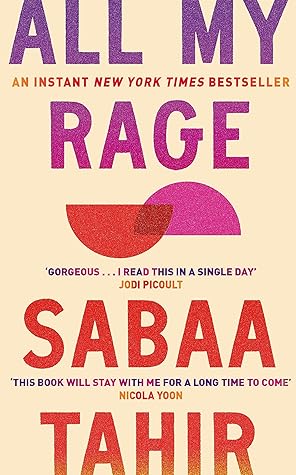More on this book
Community
Kindle Notes & Highlights
The chaiwallah brought sabz chai, Kashmiri-style. It was pink and milky, sprinkled with cardamom and brimming with crushed pistachios and almonds. A romantic tea, I always thought. Perhaps because I mostly enjoyed it at weddings.
Wondering how someone who filled up a room could fit into a box so small.
Taught me why ullu da patha—son of an owl—was her favorite Punjabi curse.
“It will help you learn English,” he said. Maybe it did. But mostly it taught me that music can be more of a home than four walls and a roof.
I’d forgotten how crying hollows you out, drains away all the shit, and leaves everything clearer.
The prayer concludes. It feels sudden, but I just wasn’t paying attention.
“Is there anything you need to talk about?” She searches my face. I shake my head. “Thanks for making me feel better about the paper.” She nods, and her shoulders relax. Relief, maybe. She moves away quickly after that. No backward glance. Like she’s worried I’ll change my mind. Like if she stays too long, I’ll say something she doesn’t want to hear.
“This life is jihad—struggle,” Shafiq says. “Sometimes the struggle is more than any sane person can bear. I won’t judge your father for his jihad, Salahudin. How dare I, when I couldn’t begin to understand it?”
Maybe she didn’t think there was anyone to help her. Maybe she thought God would help her.
Ama taught me that saying thank you to your own parents is unnecessary. Akin to thanking your lungs for breathing. The times I tried, she looked at me like I’d rejected Saturday-morning paratha.
“Why help me?” I say. “I can’t pay you, Sister Khadija.” “Don’t offend me, Noor.” For the first time since she picked me up, Khadija sounds mad. “You think I’m doing this to get paid?” She shakes her head. “Do you know what sadaqa is, Noor?” “Good actions?” Auntie Misbah taught me that. “Yes. And that’s part of giving, which is essential to being Muslim. It doesn’t matter that you’re not blood, or that I’m Black and you’re Pakistani. I’m doing this because my deen is strong.” Deen. Faith. “Besides, you will pay me back, Noor. By doing the same for someone else one day, when you’re a doctor.”
“I don’t agree that we only get what we can handle. Think of Uncle Toufiq. He cannot handle what has happened—so he turns to drink. Think of the refugees coming out of Syria. The people who lose everything in the floods in Pakistan every few years. Think of the war survivors who die trying to cross the sea. They all bear too much.”
There are many Pakistanis who are not Muslims. Christians. Atheists. Sikhs. Hindus. They still say salaam. And they still have respect.
“Your makeup’s always beautiful.” “It’s armor.” Ashlee shrugs as she walks away. “Makes the world and all its bullshit feel farther away.”
“Anger is a sin,” Imam Shafiq calls from the kitchen. “Then God shouldn’t have put so much of it inside me,” Khadija retorts. Shafiq laughs.
One of Bishop’s early titles for “One Art” was “The Gift of Losing Things.” Maybe because of all the loss in her life—family, friends, homes, people—Bishop had to see loss as a gift. It surrounded her. In order to keep from drowning in it, she couldn’t view loss as the universe’s way of saying “I hate you.” She had to make her peace with the loss, accept that it was part of her life, and find meaning in it. She had to learn that despite the loss, she would keep going.


